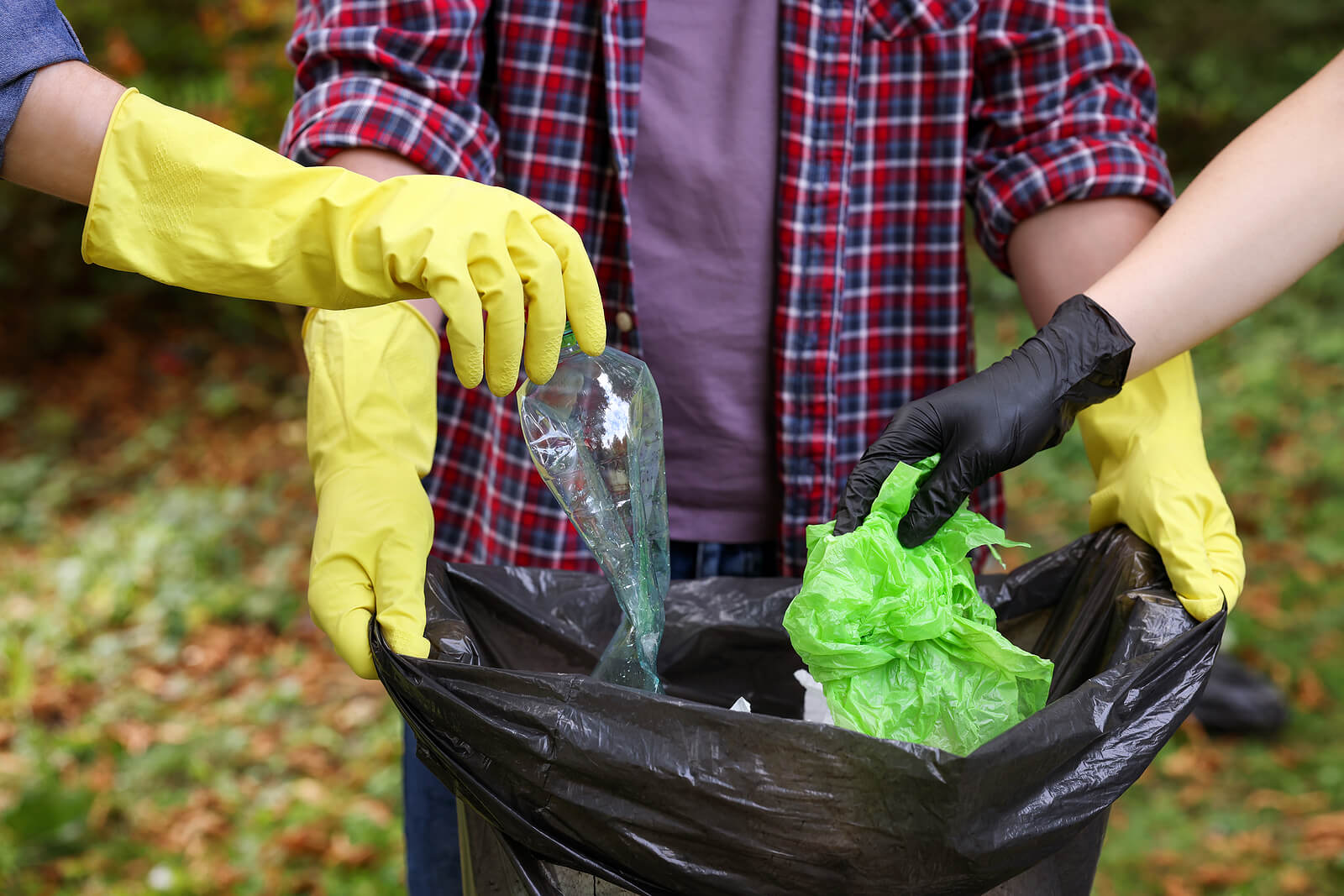Litter is a growing problem and discarded waste can be found almost everywhere on the planet.
Unsightly litter can be dangerous too, but what about its environmental impact?
Let’s look at what litter is, how it contributes to climate change, and what can be done about it.
What is litter?
The Cambridge Dictionary defines litter as:
“Small pieces of rubbish that have been left lying on the ground in public places.”
Litter is found on the street, in parks, beaches, waterways, and the ocean.
Common examples of litter are plastic bottles, glass bottles, cigarette butts, aluminium cans, fast-food packaging, and confectionery packaging.
Fly-tipping is littering on a larger scale and is often composed of electronics, furniture, and white goods.
The most up-to-date government data states that from 2018 to 2019, local authorities spent £699 million in the UK to clear litter from public places.
Unfortunately, litter is on the increase and has been for decades. From 2020 onwards, a new litter category has joined the rest: PPE. For example, face masks often litter the ground outside medical settings.
Although it tends to be categorised separately from litter, dog mess is also rising due to the pandemic, as dog ownership increased after the first national lockdown.
A survey by Keep Britain Tidy found that people who have become dog owners since the pandemic are less likely to pick up their pets’ poo.
Also, two per cent of dog owners in the UK — approximately 260,000 people — admitted to bagging their pet’s mess but choosing to leave it in public rather than bin it.
How does litter contribute to climate change?
So, does litter cause climate change and contribute to global warming?
Litter doesn’t directly cause climate change but contributes indirectly through several methods.
Greenhouse gas emissions
Litter is never picked up instantly — and nobody will ever remove it if it’s out of sight.
Even litter in plain sight is often ignored — think of the waste you see at the side of the road when driving.
Meanwhile, the litter breaks down, releasing toxic gases and chemicals that make their way into the air, soil, and waterways.
One of these gases is methane — a greenhouse gas that contributes to climate change.
Energy consumption
When local authorities clean up litter, it is picked by hand, bagged, and transported to waste disposal sites.
This transportation uses energy. Fossil fuels still power most vehicles, creating greenhouse gas emissions that contribute to the climate crisis.
What action can you take about litter and climate change?

We know litter impacts climate change, but what can you do to help? Ideally, people would stop littering, but the statistics suggest that’s not likely anytime soon.
Here are a few ideas for activities to help.
Dispose of waste properly
Firstly, be mindful of how you dispose of your waste. Not all littering is intentional, so always find a bin or take your waste home when you leave a public space.
Remember to recycle where possible.
Reduce waste
Litter is waste, so if people reduce the amount of waste they produce, littering will also decrease.
You can reduce waste in many ways — including buying in bulk, making lunches rather than buying them, switching to cloth nappies, and using a menstrual cup.
Moving away from single-use items and using reusable cups, water bottles, and shopping bags instead is ideal.
Educate and spread awareness
Education is critical to reducing street litter, so we set up our Forge Education programme for schools across Yorkshire.
Raising awareness of litter’s environmental impact can encourage people to act positively.
Litter picks
Does litter picking help climate change? Absolutely.
The less litter on the ground and in the ocean, the better, so any litter picking — whether by local authorities, businesses, or individuals — is worthwhile.
Report littering
Alongside litter picks, individuals can help in the fight against litter by reporting incidents of littering as and when they witness them.
Each local authority has a different method for reporting litter crime, so familiarise yourself with your area’s method and watch out.
Be ready to note the litter’s type and location — alongside car registration numbers if you see litter thrown from a vehicle.
Final thoughts
So, how does litter affect climate change?
Indirectly, litter increases greenhouse gas output by decomposing in the environment and being transported to waste disposal centres by vehicles.
Litter also harms wildlife — one million birds and 100,000 marine mammals and sea turtles die annually having eaten or got trapped in plastic.
Our environment would benefit from humans not littering.
